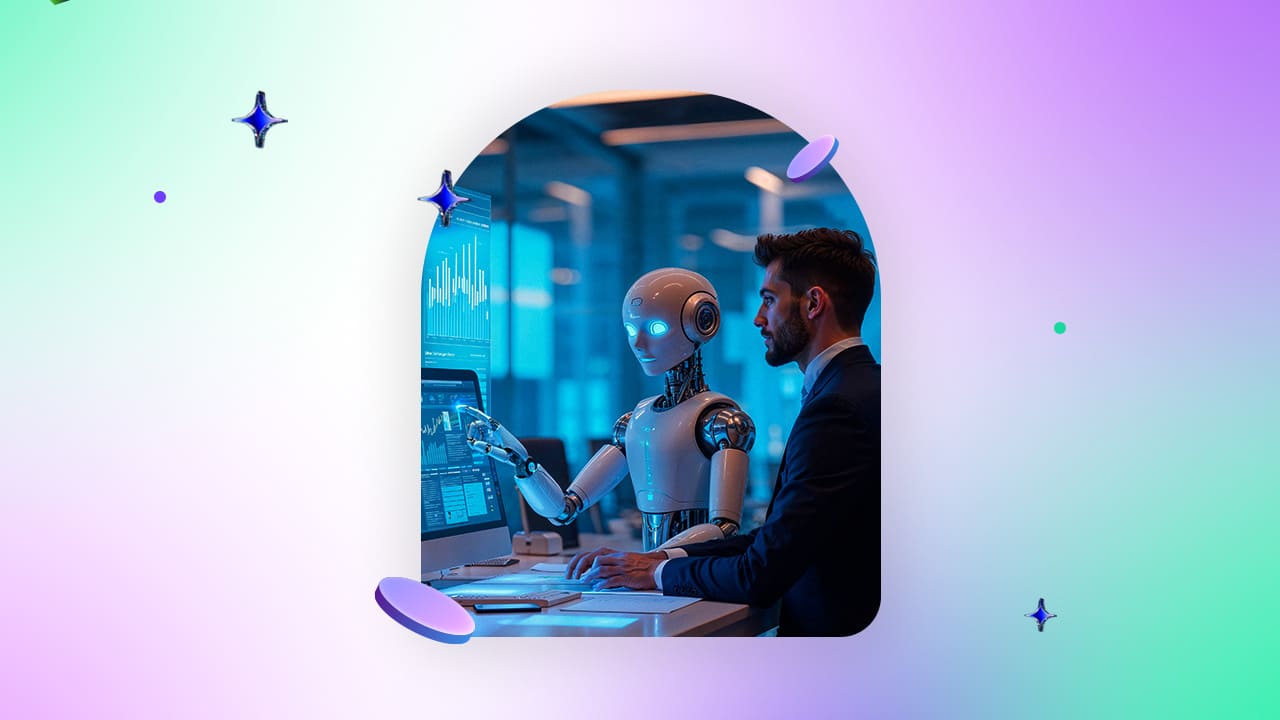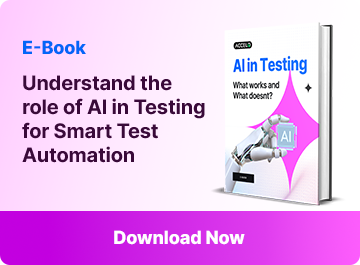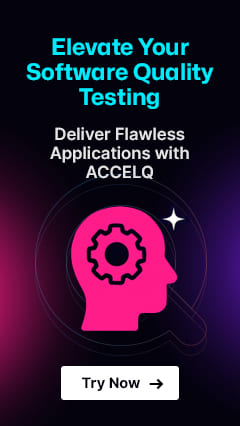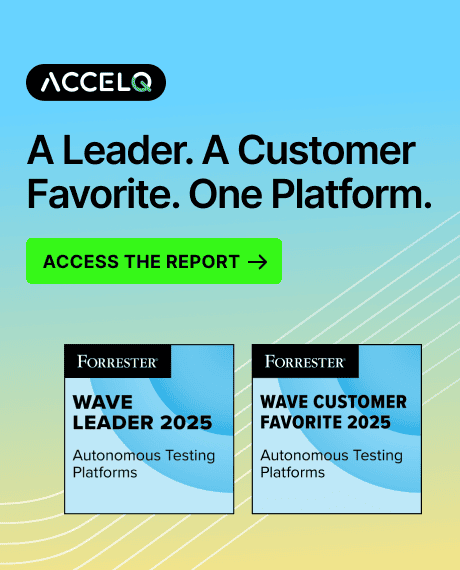AI Agents in Testing: Smarter Automation Beyond Chatbots & Assistants

Modern applications are becoming more complex. They rely on microservices, APIs, and distributed systems, which makes testing more difficult. Traditional automation struggles to keep up because it cannot handle unpredictable behaviors or real-time data processing. It cannot also make autonomous decisions.
AI agents in software testing solve these issues as they go beyond fixed rules and adjust to system changes. They can predict failures and optimize test execution. This reduces the need for manual updates. AI-driven insights improve accuracy and efficiency with their self-learning capabilities.
AI Agent in Software Testing
An AI Testing Agent is a type of artificial intelligence designed for software testing. It acts like a “digital coworker” or a “virtual tester.” It can analyze applications, identify functional issues, and detect performance problems. It also adapts testing scenarios in real time, and just like an experienced tester, it learns from previous test cycles. Over time, it improves its efficiency and accuracy.
AI testing agents in software testing rely on machine learning and natural language processing. These technologies help them understand application behavior and adapt to changes. If test cases break, AI software agents can fix them automatically. These agents work independently, but they can also assist human testers in multiple ways. Now, let us explore their capabilities in detail.
Capabilities of AI Agents in Testing
Following are the capabilities of AI Agents in software testing:
- Automation of Testing: An AI agent testing framework automates repetitive tasks. They handle regression testing, which saves time. This reduces human effort and minimizes errors. As a result, release cycles become faster. Teams can then focus on more strategic work.
- Data Analysis: AI agents for software development analyze large datasets. They detect patterns and anomalies in test results, helping testers identify critical problem areas. This targeted approach improves software quality and overall productivity.
- Predictive Analytics: AI testing agents can predict defects before they occur. They study past data to anticipate failures, helping teams fix issues early. Addressing risks in advance prevents costly fixes later.
- Test Case Generation: AI agents create test cases automatically. It is based on application requirements. This ensures thorough test coverage and reduces the risk of missing important functionalities, improving test reliability.
- Continuous Learning: AI software agents in software testing learn from previous testing outcomes. Their accuracy increases with time. This leads to more effective testing. Quality assurance improves, resulting in better software performance. Higher customer satisfaction follows.
How AI Agents Enhance Test Automation?
Here is a quick explanation of how AI agents for automation help in different testing areas.
Test Execution
Test execution involves running tests to check if everything works as expected. It often requires repeating the same tests multiple times. AI speeds up this process by running tests faster than humans. It also decides which tests to prioritize based on recent software changes. This saves both time and resources.
Bug Detection and Debugging
Bugs cause the software to malfunction, making finding and fixing them difficult. AI analyzes code and test results to detect issues faster. It can also predict where errors might be and suggest possible fixes. Further, AI supports shift-left testing by identifying problems in the development phase. For example, if a login fails, AI can locate the exact faulty code, making debugging easier.
Test Maintenance
Software evolves, and so do test cases. Old tests become outdated, and new ones are needed. Maintaining these tests manually can be time-consuming. AI automatically updates test scripts when changes occur. It ensures that tests remain relevant without requiring much effort.
Exploratory Testing
It involves navigating software without a set script to uncover bugs. It is like searching for hidden issues. AI can perform exploratory testing by interacting with software in various ways. It taps, swipes, and enters data to check for unexpected failures. AI also learns from past tests, improving its ability to find bugs.
Security Testing
Security testing makes sure that software is protected from hackers. It checks for weak points that could be exploited. AI automates security tests and identifies vulnerabilities. It can also detect new threats by analyzing past attacks. AI scans software for weak spots and helps prevent security breaches.
Testing AI Features
AI-powered features, such as recommendations and voice assistants, need thorough testing. AI agents verify if these features make correct predictions. They simulate different user behaviors to check system responses. For example, AI can test if a movie recommendation system suggests relevant films based on user preferences.
Test Data Generation
Testing requires real-world data, such as names, addresses, and numbers. Creating this data manually is challenging. AI generates realistic test data in large quantities. It mimics real-world scenarios, including edge cases, ensuring comprehensive software testing.
Use Cases of AI Agents in Different Testing Areas
Scenario:
A software company is launching an e-commerce website. It needs to test different user scenarios. These include product search, checkout, and payment processing. Each step must work correctly to provide a smooth user experience.
AI Agent Application:
- Test Logic Creation: AI agents can create test logic on their own. They study how the app works and how users behave. They also learn from past test data. This cuts down the need to write scripts by hand.
- Adaptive Test Scenarios: AI updates test cases as the app changes. It handles things like UI changes or new features without needing manual updates.
- Visual Testing: AI compares screenshots of different versions to spot visual differences. For example, it can detect if a logo is misaligned or if a button is missing.
- Test Optimization: AI analyzes past test data to identify high-risk areas in the software. It prioritizes critical tests while eliminating redundant ones.
- Test Result Analysis: AI agents review test results on their own. They find failures and group similar defects. They also point out patterns in the data. This helps you find the root cause faster and focus on what matters most.
Outcome:
AI-driven functional testing reduces manual effort, speeds up test execution, and ensures robust test coverage. The result is a reliable e-commerce platform.
Popular AI-Powered Testing Framework
Popular AI agent testing frameworks that you can use to improve the testing process are explained below:
ACCELQ
ACCELQ’s Autopilot represents a sophisticated implementation of generative AI in test automation that goes beyond basic script generation. It offers an interconnected suite of AI capabilities that work together to transform how teams create, maintain, and scale their test automation.
At its core, Autopilot combines multiple intelligent features that address the fundamental challenges in test automation:
Key Features:
- Scenario & Step Generation: It turns simple business inputs into full UI and API test scenarios.
- Modular Test Design: It builds tests in small, reusable parts. This makes them easier to manage.
- Test Case Generator: It creates different test combinations using real data. This helps cover more use cases.
- Logic Insights: It looks at your test setup and gives tips to make it better.
- Autonomous Healing: It adjusts to app changes on its own. This cuts test failures and makes fixing issues easier.
What makes this offering particularly noteworthy is how these features work together cohesively – from initial test creation through maintenance and optimization – while keeping the interface intuitive for both technical and non-technical users. The system demonstrates a deep understanding of testing principles, automatically applying best practices for reusability, maintainability, and reliability that typically require significant expertise to implement manually.
This comprehensive approach to AI-driven test automation addresses not just the immediate need for faster test creation but also the longer-term challenges of test maintenance, scalability, and adaptation to change, making it a particularly robust offering in the test automation space.
The Future of AI Agents in Software Testing
AI agents are changing the way software testing works. They improve collaboration, support intelligent exploratory testing, and create personalized strategies. In the future, multiple AI agents will specialize in different areas. Some will focus on UI, while others will handle performance and security. Different types of AI agents will work together, share insights, and increase test efficiency.
AI will also enhance exploratory testing. It can suggest test scenarios by analyzing past issues and understanding application complexity. Additionally, AI-driven personalized testing will improve the user experience. It will identify pain points and prioritize real-world scenarios that matter most.
Conclusion
AI agents are reshaping software testing. They support collaboration, provide intelligent test suggestions, and create user-focused strategies. With specialized AI working together, exploratory and personalized testing will become more effective. This approach speeds up releases, improves quality, and reduces manual effort. AI agents in testing are becoming essential for future software reliability and user satisfaction, and ACCELQ’s Autopilot can be the perfect solution. Book your free trial now.
Geosley Andrades
Director, Product Evangelist at ACCELQ
Geosley is a Test Automation Evangelist and Community builder at ACCELQ. Being passionate about continuous learning, Geosley helps ACCELQ with innovative solutions to transform test automation to be simpler, more reliable, and sustainable for the real world.
You Might Also Like:
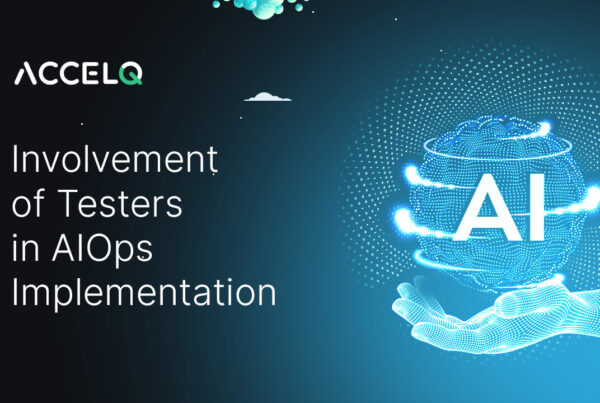 AIOps for Test Automation: The Shift Modern QA Teams Need
AIOps for Test Automation: The Shift Modern QA Teams Need
AIOps for Test Automation: The Shift Modern QA Teams Need
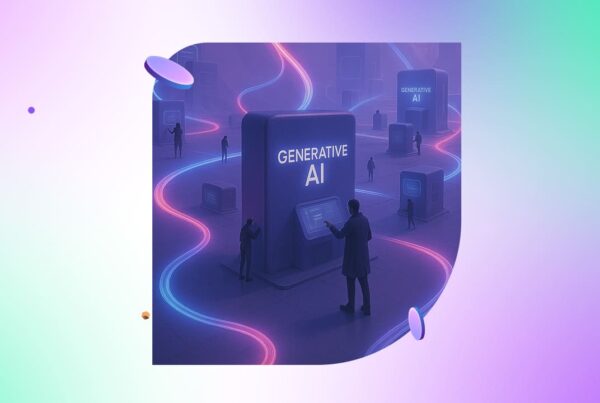 Testing Generative AI Systems – Navigating New Challenges
Testing Generative AI Systems – Navigating New Challenges
Testing Generative AI Systems – Navigating New Challenges
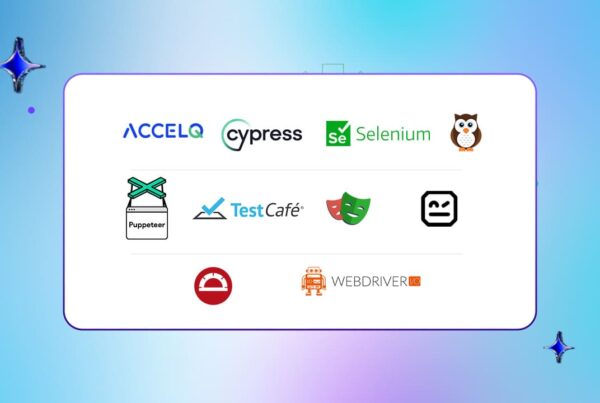 Top 10 Artificial Intelligence Testing Tools In 2026
Top 10 Artificial Intelligence Testing Tools In 2026






























